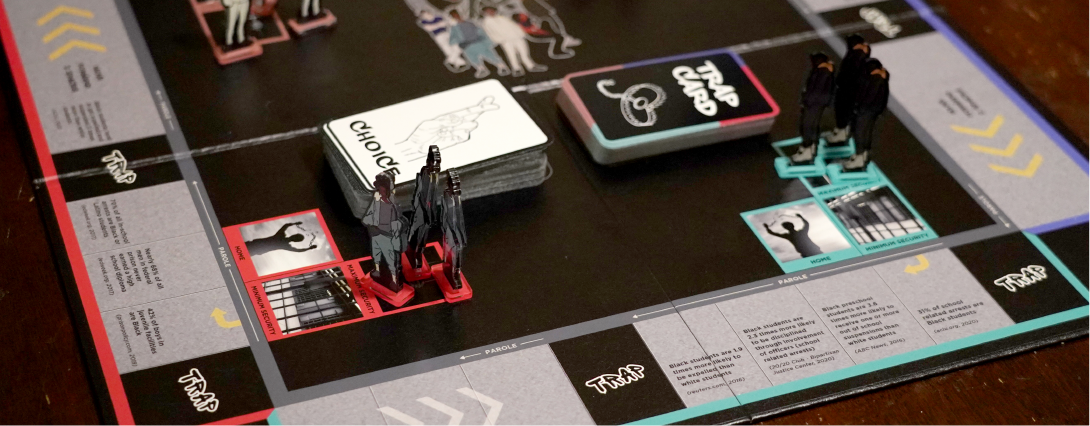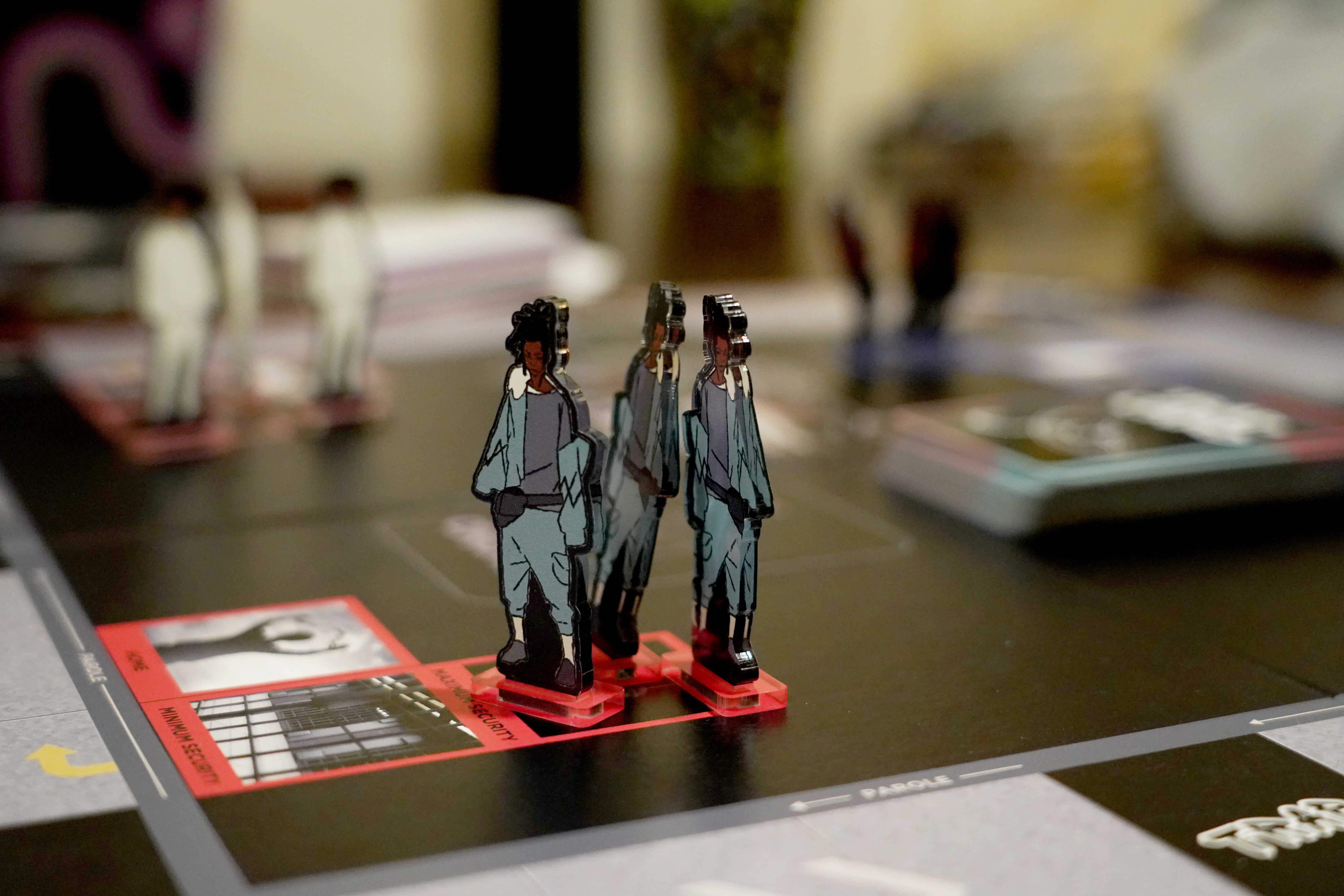System-Involved Youth Game Design
Clients: iThrive Games Foundation & The Seed InstituteVISIONING AND STORYTELLING
Can game design be a tool for healing and change?

Young people of color are particularly vulnerable to the prison industrial complex. Systematic patterns, behaviors and structures create a cradle-to-prison pipeline.
We partnered with the SEED Institute and iThrive Juvenile Justice System project to help young adults who are or have been involved with the incarceration system apply their lived experiences and knowledge to game design. Our intention was to assist in helping youth better understand their mental health, strengthen their social and emotional skills, and equip them with tools to recognize inequity and design for a better world.
What the youth designed was a board game called The Run Around that expresses their experiences with the carceral system. Modelling the rules and mechanisms of the game “Sorry,” the Run Around reframes this gameplay to evoke the frustration and lack of progress that its designers felt during their own involvement in the justice system.
The goal of the game is to move one’s pieces from Maximum Security to Home. Each person plays as a character; each character comes with a back story about their family life, street involvement, attitude, incarceration and mental health issues after release. Players use numbered Choice Cards to move around the board, while Trap Cards prevent them from progressing in the game. Cards also feature anecdotes from the young people about reasons for these choices or set-backs, and facts and figures about the justice system populate the board.
While “Sorry” is a game about going home, in the Run Around, the path home for all characters is near impossible. The youth designed the game so users would intentionally fail, which visualizes and narrates the same tedious and inequitable journey they experienced within the incarceration system.
The Run Around is designed as a tool for empathy, to be played by people who have influence in the system or engage with young people: policy-makers, educators, families and other stakeholders. It’s intended as a catalyst for system change, to spark conversations among these folks that can drive both individual and policy reexamination.
![]()
![]()
We partnered with the SEED Institute and iThrive Juvenile Justice System project to help young adults who are or have been involved with the incarceration system apply their lived experiences and knowledge to game design. Our intention was to assist in helping youth better understand their mental health, strengthen their social and emotional skills, and equip them with tools to recognize inequity and design for a better world.
What the youth designed was a board game called The Run Around that expresses their experiences with the carceral system. Modelling the rules and mechanisms of the game “Sorry,” the Run Around reframes this gameplay to evoke the frustration and lack of progress that its designers felt during their own involvement in the justice system.
The goal of the game is to move one’s pieces from Maximum Security to Home. Each person plays as a character; each character comes with a back story about their family life, street involvement, attitude, incarceration and mental health issues after release. Players use numbered Choice Cards to move around the board, while Trap Cards prevent them from progressing in the game. Cards also feature anecdotes from the young people about reasons for these choices or set-backs, and facts and figures about the justice system populate the board.
While “Sorry” is a game about going home, in the Run Around, the path home for all characters is near impossible. The youth designed the game so users would intentionally fail, which visualizes and narrates the same tedious and inequitable journey they experienced within the incarceration system.
The Run Around is designed as a tool for empathy, to be played by people who have influence in the system or engage with young people: policy-makers, educators, families and other stakeholders. It’s intended as a catalyst for system change, to spark conversations among these folks that can drive both individual and policy reexamination.

Our mission is to use design to reduce structural inequity in America. Agncy is a 501(c)(3) nonprofit organization. © 2025 Agncy Design Inc.
augusta@agncy.org
Boston, Massachusetts
Boston, Massachusetts
